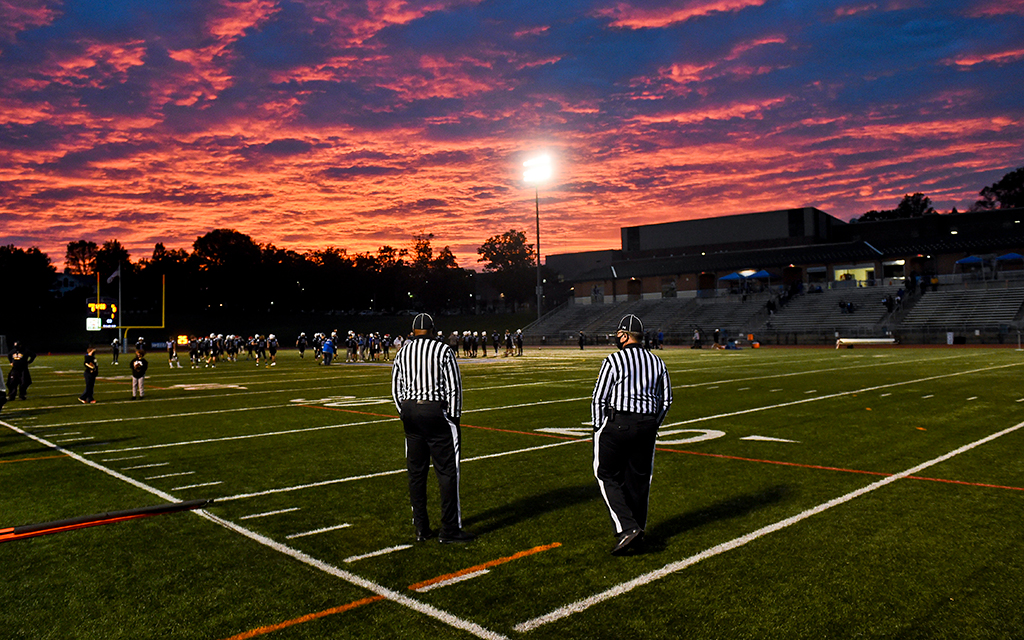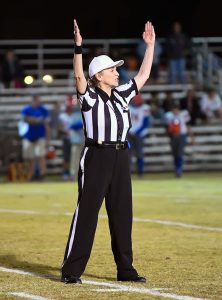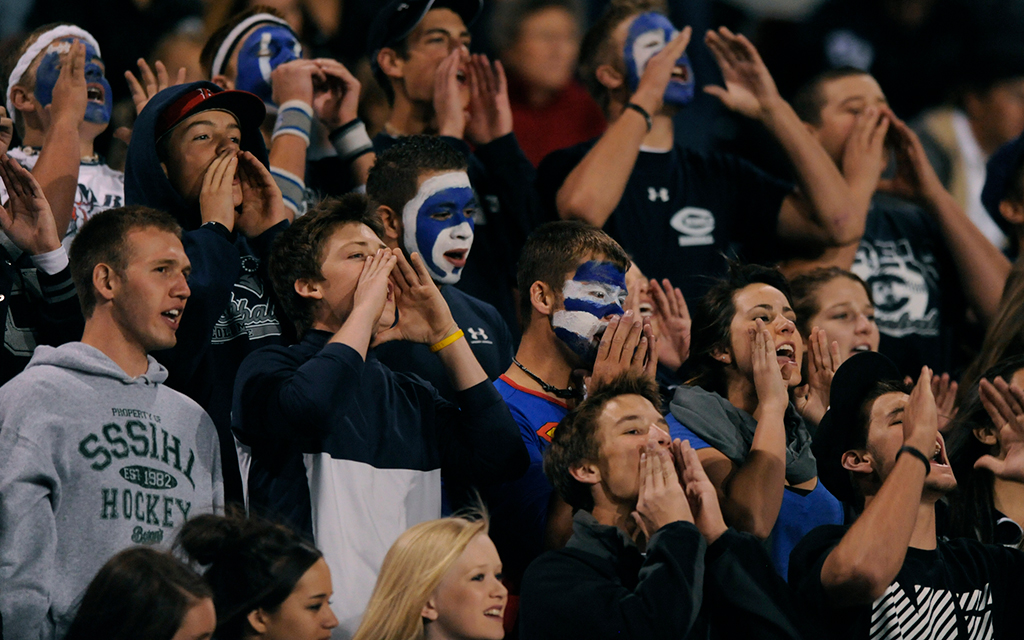The AIA does recruit officials but has tried to focus more on retention than recruitment in recent years. For recruitment, the association asks each school to provide one male and one female graduating senior that the school thinks could be a fit. The AIA is also working with schools in the Dysart Unified School District to offer an officiating elective class that high school students can take to get them prepared for a career in officiating.
“If you get into officiating, your odds of making it as a professional official are higher than a player’s odds of making it as a professional athlete,” Cerimeli said. “The odds of making a career out of it if you get in early enough are there, it’s just a matter of adjusting to the environment. We have a countless number of officials working at the Division I level, (at) the professional level that came up from the AIA ecosystem.”
A challenge in recruiting and retaining women is the treatment of women. Throughout her career, Montgomery had been told by referees that crews with women don’t get the opportunities that other crews get.
“Twenty-five years ago, I kept getting thrown off officiating crews,” said Montgomery, who became a referee so she could pick her own officiating crew. “The men were really honest with me. They said, ‘We aren’t going to get any big games with you on our crew because you’re a woman.’ And I hated them for it, but they were right. … I would like to tell you that 40 years later it was easier for me to be an official, but it wasn’t.”
This issue extends beyond AIA and the high school level. Todd Sergi is the Arizona State Referee Administrator for U.S. Soccer. He is connected to all things involving soccer officiating for U.S. Soccer and works closely with the Arizona Soccer Association.
Parts of his job include trainings, instruction, development and reports on officials in the state. Posted at the top of the website, azref.com, is a prompt to submit a report on referee abuse.
“We had a young lady on a match in a tournament that the parents were berating during the match. The director of coaching came on the field of play and verbally abused her (and) brought her to tears,” Sergi said. “When we got the video and the report, it stirred something in us. We said we need to take more of an active role in getting information from our referees in all events.”
Referees, parents, coaches and players can file reports on verbal abuse so the association can track the instances and make better decisions on how to address each case. In its first year in use in 2021, the association received 62 cases of referee abuse.

Harassment of officials has spread to social media, making it even more difficult to find enough to cover the many high school events in Arizona. (File photo by Kevin Hurley/Cronkite News)
“It’s been a great tool for us to get information and take action on behalf of the referees in the state,” Sergi said. “Particularly with Arizona soccer, because we have such close ties with them. It is easy to take action quickly.”
The referee issue is two-fold: There aren’t enough people and the majority of them are over 60.
“Most officials when they come out for the first time, they were around sports, their kids were in high school, their kids went to college (now) they’re looking for something to do,” Cerimeli said. “They tend to skew older or middle-aged.”
While the AIA and other officiating bodies work to get younger and keep officials, schools are trying to encourage more sportsmanship from the fans. The AIA has a sportsmanship and ethics committee that has a sportsmanship reporting process where officials can rate sportsmanship from players, fans and coaches. Athletic directors can log on and see how their school and sports programs are doing.
“You have to have officials or else you don’t have a game,” Goodman said. “It’s an investment in ourselves. We have to be good so that we can have these events and outings. You’re investing in what you want.”
There is no simple solution, but Sergi, Goodman, Montgomery and Cerimeli agree that refs need to be treated better if youth sports are to continue.
“Right now, the environment is continuing to get worse,” Cerimeli said. “That is something else we have focused on in the past couple of years, trying to turn around sportsmanship, trying to fix those issues and make officiating more appealing.”




